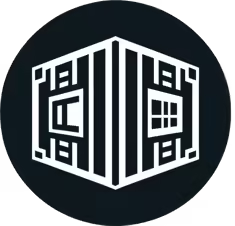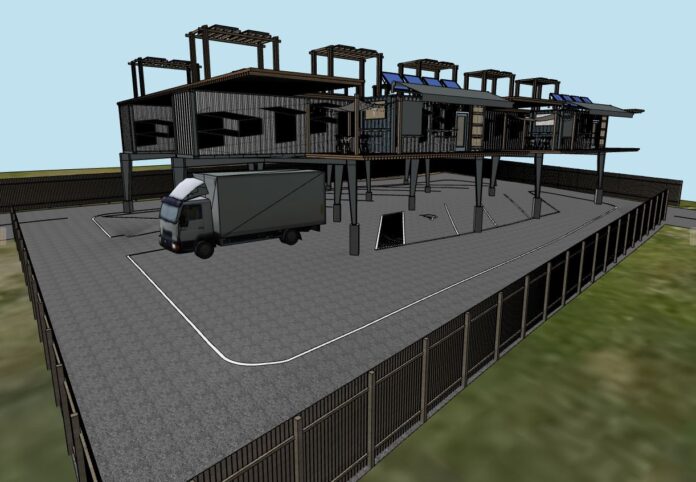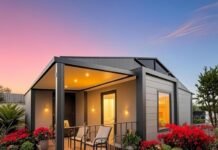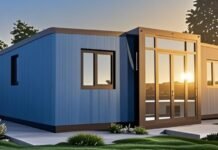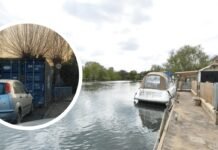In recent years, the construction industry in Fort Worth has embraced a novel approach that blends sustainability, innovation, and cost-efficiency: shipping containers. Originally designed to transport goods across oceans, these robust, box-like structures are finding new life as bases for restaurants, offices, and even homes. This article delves into the exciting developments surrounding shipping container construction in Fort Worth, highlighting new projects, community reception, and the broader implications for urban development and environmental sustainability.
A Sustainable Solution to Construction Costs
As urban areas continue to grow, so do the costs associated with traditional construction methods. In Fort Worth, metal shipping containers have emerged as a popular choice among developers looking to keep expenditures low while maintaining quality. Their inherent durability and the ease with which they can be modified make them a viable option for various types of projects. Rather than relying solely on conventional building materials, architects and builders are turning to these repurposed containers to meet the demands of the market while adhering to environmentally friendly practices.
New Developments on the Southside
One of the most exciting projects on the horizon is the retail development anchored by Hazel’s Back Porch, a barbecue restaurant that seeks to enrich the Southside neighborhood. Located at East Maddox Avenue and U.S. Highway 287, this development will consist of multiple retail shops, all crafted from shipping containers. After facing initial zoning challenges, the Fort Worth City Council granted the project approval on November 12, allowing for the sale of alcohol alongside meals, a key aspect of the restaurant’s appeal.
Hazel Prophete, a Fort Worth native, expressed her excitement regarding the project. The land was purchased by her father years ago, and she aims to create a neighborhood hub for shopping, dining, and socializing. The restaurant, which started as a food truck, plans to incorporate a rooftop deck, providing diners with an inviting space to enjoy their meals. Construction is expected to begin in early 2025, reflecting the rapid advancements being made in container construction across the area.
Architectural Innovation and Community Impact
Architect Will Turner, based in Houston and associated with PTAH Group, is collaborating with Prophete to refine the project’s design to meet the necessary zoning standards required for this unique style of development. Turner, an expert in container architecture and author of “Guide to Container Architecture,” notes that shipping containers require a fresh approach to design, taking into account the zoning requirements and the spatial needs of businesses.
Turner expressed optimism about the project, revealing that they are currently engaging with lenders and construction partners with the hope of submitting their permit application early in 2025. He points out that container structures, long used in other countries, are becoming increasingly popular in the U.S. for both residential and commercial uses due to their combination of cost-effectiveness and creative potential.
Expanding the Modular Restaurant Concept
Another notable development is the arrival of Smalls Sliders, a cheeseburger slider brand from Atlanta that plans to establish six restaurants—known as “cans”—across the Fort Worth area in 2025, including locations in White Settlement, Weatherford, Granbury, Cleburne, and Stephenville. These modular buildings will be produced in one of Smalls Sliders’ assembly facilities before being quickly deployed to their respective sites.
Maria Rivera, CEO of Smalls Sliders, highlights the effectiveness of modular construction. “Modular is not new; it has been very effective for a lot of years,” she stated, emphasizing the commitment of her company to utilize only modular building practices. This approach not only optimizes the construction process but also significantly reduces waste, aligning with the principles of sustainability that are increasingly important to consumers.
Unique Challenges and Opportunities
While the use of shipping containers in construction offers many benefits, some challenges remain. Jie Melchiors, CFO of MEL/ARCH, confirmed that their firm encountered unique design hurdles while constructing the Connex office complex using shipping containers. Fort Worth’s building codes posed challenges to the design, requiring the team to seek waivers to accommodate specific architectural features.
Similarly, Shadda Graham, who heads Custom Container Homes, specializes in creating container houses that appeal to a wide range of consumers, albeit mostly for secondary homes or recreational use. He emphasized the difficulties in obtaining city approvals for permanent residences, which often stymie potential projects aimed at providing affordable housing solutions.
The Future of Container Construction in Fort Worth
The trend of utilizing shipping containers in Fort Worth is gaining momentum, reflecting a larger movement towards innovative, sustainable construction practices. As city officials continue to approve container-based projects, it appears that Fort Worth is on the verge of becoming a hub for this exciting architectural approach.
From new dining experiences to modern office spaces, shipping containers offer versatility and an eco-friendly alternative to conventional construction techniques. As both consumers and developers prioritize sustainability, these container developments could shape the future of urban design in Fort Worth and beyond.
The adoption of shipping containers as a viable alternative in construction not only provides economic benefits but also aligns with a growing consciousness about environmental impact, paving the way for a more sustainable urban landscape. As projects continue to break ground, the hope remains that this trend will inspire even more creative uses of shipping containers in communities across the United States.
Eric E. Garcia is a senior business reporter at the Fort Worth Report. You can reach him at [email protected].
